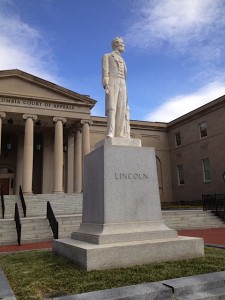Prior Recorded Testimony
 The “prior recorded testimony” exception to the hearsay rule is based on the assumption that “[c]ross-examination, oath, the solemnity of the occasion, and the accuracy of modern methods of recording testimony all combine to give former testimony a high degree of reliability.” McCormick on Evidence § 302.
The “prior recorded testimony” exception to the hearsay rule is based on the assumption that “[c]ross-examination, oath, the solemnity of the occasion, and the accuracy of modern methods of recording testimony all combine to give former testimony a high degree of reliability.” McCormick on Evidence § 302.
Previous testimony – testimony that was recorded and under oath — can be admitted in a number of different circumstances in which no exception to the hearsay rule is required. It can be admitted, for example, to prove an act of perjury, to show that testimony against the accused furnished the motive for retaliation against the witness, to refresh recollection, or to impeach a witness at the present trial by proving that earlier testimony was inconsistent. It can also be offered as hearsay under another exception (e.g., admission of a party-opponent or past recollection recorded) assuming the proponent of evidence can satisfy the requirements of that other exception.
In order to introduce prior recorded testimony as an exception to the hearsay rule in D.C., the proponent of the evidence needs to satisfy four requirements. Bedney v. United States, 684 A.2d 759, 763 (D.C. 1996). First, the proponent needs to prove that the declarant is unavailable at trial. As McCormick puts it, “the strong policy favoring personal presence requires that unavailability of the witness be shown before the substitute is acceptable.” Second, the former testimony must have been given under oath or affirmation in a legal proceeding. Such formalities, emphasizing the solemnity of the occasion, are required to assure reliability.
Third, the issues in the two proceedings must have been substantially the same. Skyers v. United States, 619 A.2d 931, 933-34 (D.C. 1993). Finally, the proponent needs to prove that the party against whom the testimony is now offered had the same opportunity and motivation to cross-examine the declarant at the former proceeding. In Akers v. United States, 679 A.2d 1017, 1030 (D.C. 1996), for example, the government should not have been allowed to introduce prior grand jury and trial testimony of the witness because appellant was not able to cross-examine the witness at either proceeding.
In short: unavailability of declarant, oath/affirmation, issues substantially the same, and opportunity for cross-examination.
